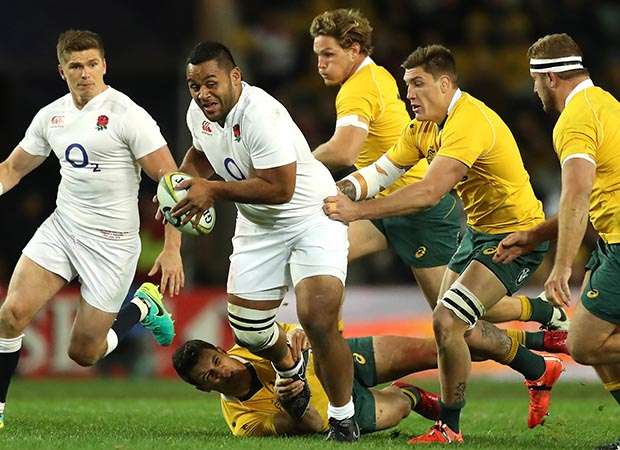 Am I the only one who doesn't understand the continual call for a global season and how moving a couple of competitions will reduce the workload on players?
Am I the only one who doesn't understand the continual call for a global season and how moving a couple of competitions will reduce the workload on players?
This week we had WRU chairman and Welsh legend Gareth Davies suggesting the whole global game is up for possible change so as to relieve pressure on players.
After Wales suffered the embarrassment of three humiliating defeats to a series of experimental All Black teams, the usual excuses have been rolled out.
Davies promulgated the fact that the Welsh players had started their season in June 2015 and had played a total of 18 Tests when it finished 13 months later.
Davies' comment that playing international rugby for 13 months is unsustainable is probably right but the players haven't done that.
They started training in June like England, then had two warm-up matches in August and one warm-up and two World Cup matches in September, three more RWC matches in October then no internationals for three months.
The internationals resumed in February with three Six Nations games and the remaining two in March. There was another break through April with a pre-tour game against England at the end of May, leaving the three tour matches in June.
England played 17 matches (just one fewer than Wales) with players having more club games throughout the season than their Welsh counterparts – but their ten-match run of wins since RWC means there is no need for excuses.
The extra international matches played in the last year were, in part, preparation for the World Cup but mainly for the Unions to make up the lost revenue from not having any Autumn Internationals.
The reason for the June start to training, which is just a couple of weeks before pre-season training usually begins, was the agreement by World Rugby for all RWC's to start in September.
The September date was chosen because it ‘fitted' with the global break in the season allowing both hemispheres a chance to rest players before the contest began.
Put simply, because Northern Hemisphere players had ended the previous season at the end of May while the Southern Hemisphere ended in August, our international players needed to start pre- World Cup training in June to be near the same level of match fitness as their southern rivals.
I would hazard a guess that come RWC 2019 in Japan, Northern Hemisphere players will start their pre-World Cup training in June whether there is a change to the Six Nations timetable or not.
What I can't understand is how moving the Six Nations by a few weeks would make a difference to when tours take place or have any impact on player welfare.
I assume that the call to move it to April is to allow the clubs and provinces to complete their season before the internationals take place but I seriously doubt that the clubs would want to sit idly by while international rugby dominates the airwaves through April, May and June.
The alignment of the global rugby calendar can have only one outcome in my opinion, which is an increase in the number of matches, as provinces and clubs arrange fixtures across the hemispheres.
The Premiership, who have already muted the idea of these matches and moving their season to include more summer time, would love moving the Six Nations to create space in the calendar, bringing them closer to the dream of Super Rugby fixtures.
The question is, why it is us that is always being asked to change when it would make far more sense and be easier for the SANZAR countries to change their season?
In this hemisphere, rugby competes with a number of established sports and fits into a niche in the calendar that suits the six nations involved and a number of other countries hoping to join the party. Changing the structure of the season for all the countries would be difficult to say the least.
It could have a negative impact on the numbers that play although that may not be of concern for the Premiership, as they want spectators not players.
Davies raises the question of either increasing the number of countries involved or a form of promotion and relegation between the six nations and the current FIRA competition. Apart from stating the obvious that any increase in countries competing would entail more games for players and prolong the season, it is important to know what the FIRA countries can bring to the table.
If we go down the route of expansion of the Six Nations or a two league system with promotion and relegation, it could have a reverse effect, causing relegated countries to suffer a dramatic loss of players and supporters or bankruptcy, either when the money from being in the current Six Nations is diverted to/or shared with the promoted country.
For those who champion the inclusion of countries like Georgia and Romania, I say look at Italy, it has taken them many years to reach a level where they can be competitive at least some of the time.
If the Six Nations committee is really honest about player welfare and increasing opportunity for the FIRA nations, they should first instigate a Six Nations ‘A' League with England, Ireland, Wales and France providing the opposition for the top two FIRA teams.


























